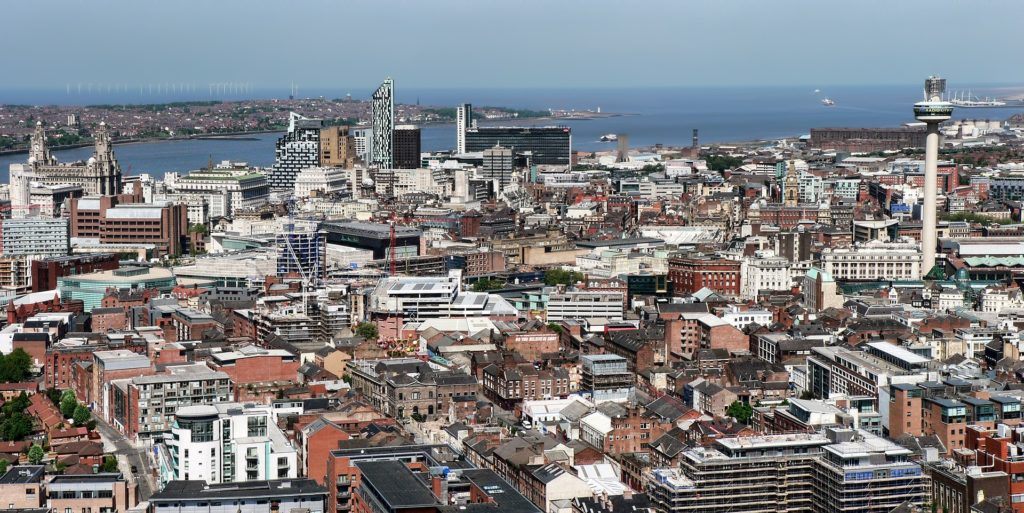Refugees in Croatia trying to get into Western Europe, September 2015. Credit: Gregor Fischer/DPA/PA Images

In Britain, like every other Western country, immigration is one of the biggest – if not the biggest – concern of the general public. Like publics across Europe, poll after poll shows that the British public want immigration to be reduced. And yet in recent years the government has either been unwilling or unable to satisfy that desire of the people. Of all the issues that have caused a breakdown in trust between the public and the politicians, the political inability to get more control of immigration is the most fundamental.
Some news this week demonstrated the depth of that divide. On Thursday the BBC led its bulletins with the good news story that “latest estimates” revealed a “big net migration fall since Brexit vote”. I say ‘good news’, because news of a fall-off in net migration would suggest that all the people who had voted for Brexit in order to ‘take back control’ of their borders might be being listened to and their concerns acted upon. Nevertheless the pro-mass migration Institute of Directors, among other institutions, lamented the figures, claiming that they revealed “signs that [the UK] is becoming a less attractive place to live and work.” At the other end of the debate, the think tank MigrationWatch warned that despite the news, the current government remains “likely to fall well short” of its own targets for bringing down net migration during this parliament.
This back and forth is typical of the gap in the actual immigration debate. The “big fall” which the BBC announced was in fact a fall in net migration to 246,000 for the year. And that fall was mainly accounted for by EU migrants leaving the UK. What is more, this “big fall” – far from being a historic achievement – only means net migration into the UK has come down to its lowest levels for three years – but is still at a historically very high level.
This “big news” highlights a far deeper aspect of the immigration debate, which is true not just of the UK but common to each country across the continent.
In recent years, while travelling across Europe to study migration and its effects, I have come across the same story in each Western European country. In every one there is an apparently unbridgeable divide. On the one hand there is the popular cry that ‘we aren’t allowed to debate immigration’. On the other there is the almost equally common reply, ‘what are you talking about? We are forever talking about immigration’. Through my travels and conversations with publics and policymakers I stumbled on the reason why these two apparently irreconcilable arguments co-exist.
The simple fact is: we do not have the immigration debate that people want. The announcement of a three-year low in immigration into the UK – coming as it does into the third decade of a historic high point of immigration into the UK – exemplifies this divide. The decision of 51,000 EU nationals ending their time in the UK is undoubtedly something but it does not get to the heart of the immigration concerns felt by the British – or indeed European – publics.
For the general public the concerns over immigration start with the realisation that the external borders of Europe are so porous that boatloads of people from sub-Saharan Africa can just land on a crowded beach in southern Europe (as this footage a fortnight ago from Spain shows) and walk right in.
It extends after that to the knowledge that there are immediate security risks caused by such laxity, a risk that in the last year has seen recent migrants carry out suicide attacks across the continent in Ansbach, Wurzburg and Stockholm, to name just three cases.
It then leads to the knowledge that people like the Barcelona cell – who managed to kill 13 people in a single day last week and had plans to kill many more, as well as destroy major monuments of European civilisations – are in our continent for no good reason.
From there the concerns spill outwards. They are cultural – the feeling that Europeans are losing their place in the world and that in an era in which the world is being invited to join us, the peoples of Europe are being edged out. And from these existential questions it circles around once again to the mundane and the everyday.

For instance, in Britain there is a serious and growing problem of house prices – a problem which is seeing the younger generation edged out of any realistic hope of ever having a place on the property ladder. Politicians are keen to talk about all sorts of aspects of this problem other than the most obvious one – which is that the number of houses which need to be built each year in the UK corresponds almost exactly to the number of people who are added to the country by net migration.
It gets worse. Whenever somebody does make this connection (as the former Conservative MP Julian Brazier recently did on Channel 4 News) they are treated with incredulity. During Brazier’s recent interview an astounded Krishnan Guru-Murthy continually asked what evidence there was that migration pushes up rent and house prices. This is like asking for the evidence that rainfall causes puddles. And again – even if you mention the connection between these two things – nobody ever gets onto the real question behind it. People who support mass immigration may put their focus on the inability of the government to encourage house-building at the rate that would slow the pressure on the housing market. Just build, they say.
But what of the question beyond that one? For instance when is there ever an opportunity to have a serious public or political debate over whether we really want to have to build a city the size of Liverpool every 18 months in order to accommodate the people who come in each year? Even if recent migration to the UK was halved to around 155,000 a year it would (as Migration Watch point out here) still mean importing a population larger than that of Slough each year. Are the benefits of immigration at the current rate so clear that the British public would support their countryside having a brace of Sloughs added to it every twelve months?
This is the immigration debate that people want to have. A debate which encompasses the national and civilisational questions which immigration on the scale of recent years raises, and a debate which is unafraid to address the practical questions that follow. Signs that any such debate is upcoming remain slender. Theresa May’s former advisor, Nick Timothy, used his new Telegraph column to address the first nuggets of the questions in this debate. His column, however, also makes it obvious that there is something unique about the immigration issue which means people still have to be far from government before they are even able to nibble at the significant questions which lie beneath the whole.
So yes, we are having an immigration debate but it is wafer thin. The public in Britain – like publics all across Europe – deserve to have far deeper and more serious fare.
***
> Douglas Murray is the author of the best-selling “The Strange Death of Europe, Immigration, Identity, Islam“, published by Bloomsbury. His column for UnHerd will appear every Friday.










Join the discussion
Join like minded readers that support our journalism by becoming a paid subscriber
To join the discussion in the comments, become a paid subscriber.
Join like minded readers that support our journalism, read unlimited articles and enjoy other subscriber-only benefits.
Subscribe